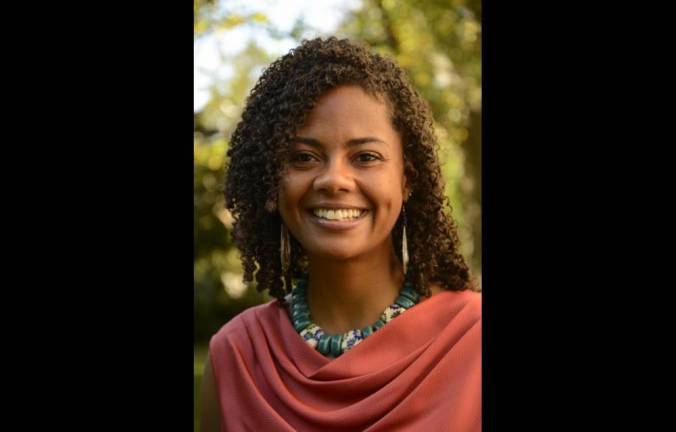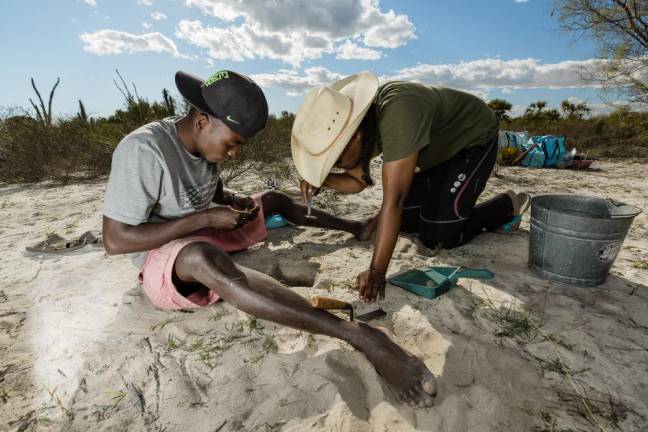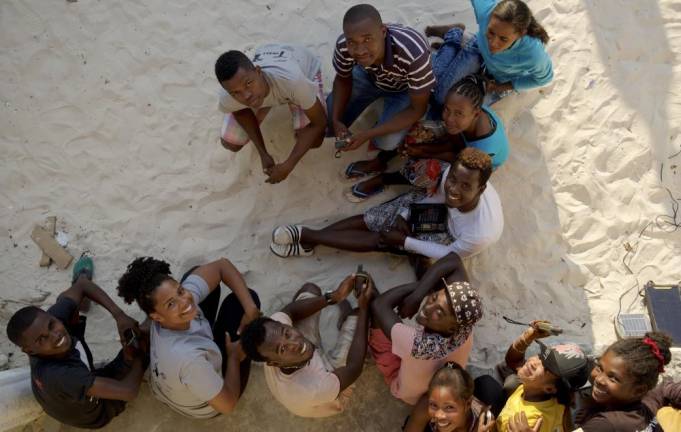Kristina G. Douglass to Join Columbia Climate School as First Faculty Hire
The nation’s first graduate school for climate centers interdisciplinary research and education



Kristina G. Douglass is driven by questions. The archaeologist and anthropologist said she often feels like a fish out of water because she’ll come up with project ideas but won’t have the necessary skills to produce a solution. It’s positioned her to make collaborative approaches to her work and assemble teams with various skills to investigate complex questions.
Her question-driven approach is a perfect fit for Columbia Climate School’s interdisciplinary education that tackles one of the biggest environmental issue of our time, global warming. “What the climate school is designed to do is create a space where people can focus on the big challenges, the big questions, and then have the support and the flexibility to assemble the right kinds of teams to answer them,” said Douglass.
First announced in July 2020, the Columbia Climate School is the nation’s first graduate program devoted to climate. The program was created with the intention of equipping students with the skills and knowledge to become future climate leaders. The school supports innovative research and fosters exploration into the human dimensions of our warming planet.
“The School, at least at the outset, will be somewhat unconventional in its structure, building capacity from a hub of existing, world-class research centers and programs,” said Columbia’s president Lee C. Bollinger in an announcement about the Climate School. The education center combines courses across disciplines such as science, law, business, policy, engineering and more.
The questions researchers ask about climate change are complex and cover a wide range of subject areas. “For example, how can we facilitate resilience for coastal fishing communities experiencing the impacts of climate change?” said Douglass. The question involves oceanography, fisheries science, anthropology, health, nutrition, and the list goes on. The Climate School’s interdisciplinary approach is essential in giving students a holistic education when it comes to climate.
The courses are currently taught by faculty from departments at Columbia, but Douglass will be the first educator hired by the Climate School. The archaeologist and anthropologist will start as the first Associate Professor of Climate this July.
Human-Environment Interactions
Douglass graduated from Dartmouth with a degree in classical archaeology and completed her master’s and Ph.D. distinctions in anthropology at Yale. She is a 2021 Andrew Carnegie Fellow and was an educator at Penn State University as the Joyce and Doug Sherwin Early Career Professor in the Rock Ethics Institute and assistant professor of anthropology and African Studies.
Douglass’ research focuses on human-environment interactions in Madagascar. She has directed the Morombe Archaeological Project (MAP) in the Velondriake Marine Protected Area of southwest Madagascar since its creation in 2011. MAP aims to recreate the historical ecology of the area by compiling information about the region’s changing climate, human-environment dynamics, settlement history, migration and faunal extinction. The project is a collaboration between a team of scientists and local community members representing five ancestral clans.
The central question of Douglass’ work is how people transmit knowledge acquired from the environment across time. “I’ve always felt that humans are unique in our ability to share information and transmit that information over many generations,” said Douglass. “It’s what has helped our species evolve to occupy any habitat on the planet.”
Her understanding of how the past informs our solutions to current problems is what led her to be an archaeologist. Her motivation to bring these deeper lessons and perspectives to contemporary issues is what she hopes to bring into her new role at the Climate School.
Her background has also shown her the necessity of fostering community-centered scientific research to bridge the divide between scientific processes and the public. “If we’re going to address something like the climate crisis, we need people to be involved,” said Douglass. “We need the concerns people are expressing and the challenges stakeholders are experiencing to be at the forefront of what we do.”
The Climate School plays an important role in inspiring engagement and outreach on a larger scale. Douglass hopes the school can be an inclusive and welcoming hub for the community.
Douglass is looking forward to taking on the new role and learning from her new colleagues and students. “My lifelong goal is to be a learner,” said Douglass. “To do so in a vibrant city experiencing some intense challenges from the climate crisis, what better place is there to be thinking about how to connect stakeholders to science and deal with issues of inequality?”
“If we’re going to address something like the climate crisis, we need people to be involved. We need the concerns people are expressing ... to be at the forefront of what we do.” Kristina G. Douglass